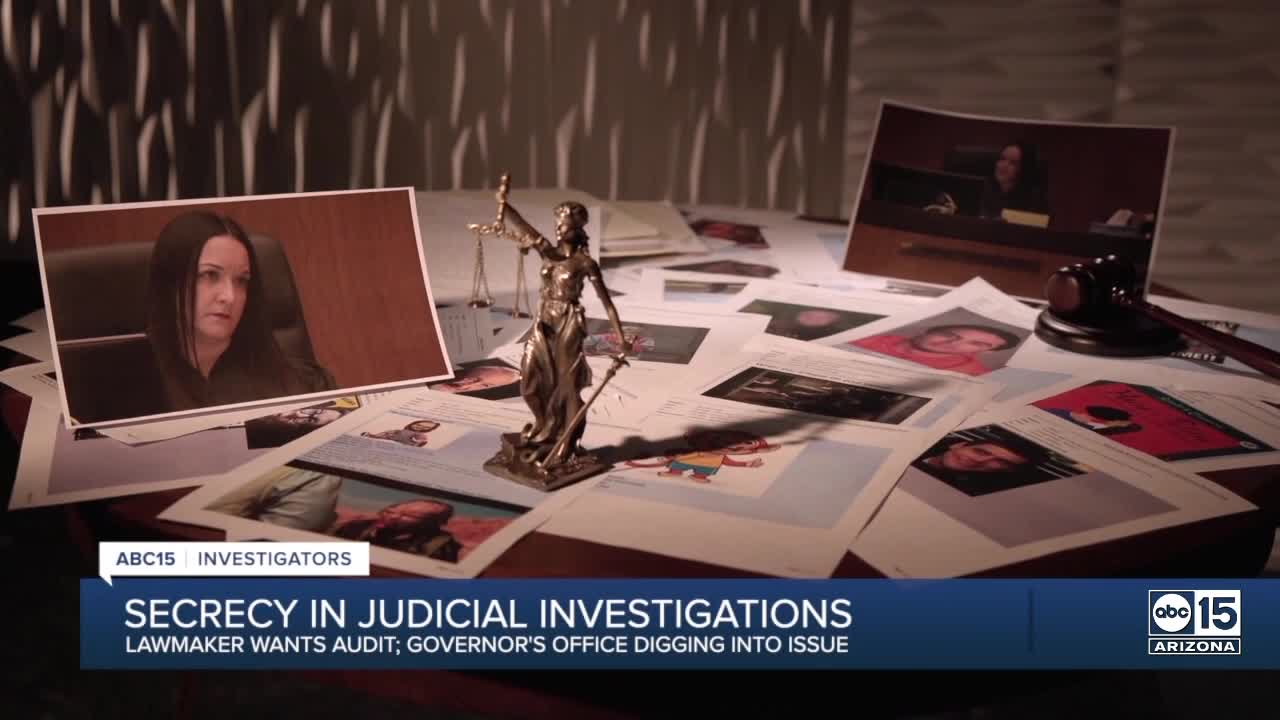PHOENIX — The Governor’s Office and a state legislator are separately exploring ways to address the lack of transparency and public accountability with how Arizona investigates and disciplines judges.
The officials’ new focus on Arizona’s Commission on Judicial Conduct is because of ABC15’s (dis)Honorable investigation, which exposed “astonishing and horrific” misconduct that was kept hidden.
“We absolutely need to bring the judicial branch out of the shadows,” said Rep. Analise Ortiz, D-Phoenix, during an interview with ABC15. “We should not be in favor of any kind of system where a judge can essentially commit misconduct, be disciplined for it behind closed doors, and the public never knows.”
FULL COVERAGE: ABC15’s (dis)Honorable Investigation
Ortiz added that she has asked the Auditor General to explore whether the commission can be audited since court rules and procedures aren’t subject to legislative changes.
“I think it sends a message that we want to know what this commission is up to,” Ortiz said.
A spokesperson for Governor Katie Hobbs did not offer specifics of what actions the officer may consider.
“Thanks for bringing this to our attention, this is on our radar to address and dig into,” said Josselyn Berry, the Governor’s press secretary.
Last year, ABC15 exposed how former Maricopa County Superior Court Judge Erin Otis and her staff frequently mocked and ridiculed people during hearings and trials, including death penalty cases, by routinely emailing each other cruel, racial, and obscene statements, jokes, and memes.
RELATED: State Bar disciplines MCAO death penalty prosecutor, former judge
The commission, which has refused ABC15’s requests to release underlying case records, issued Otis a private warning letter instead of sustaining the complaint. The dismissal allowed the judge to keep her name and involvement confidential.
Otis left the bench in 2020 to take a job as a death penalty prosecutor at the Maricopa County Attorney’s Office.
The Commission on Judicial Conduct was created in 1970.
It’s an independent state agency responsible for investigating complaints against justices and judges at all levels in the state court system. The commission is currently made up of 11 members, including six judges, two attorneys, and three public members.
The commission operates under Arizona Supreme Court rules, which have a special carve-out from state public record laws.
Those rules make the following commission documents confidential: correspondence, drafts, computer records, investigative reports, attorney work product, deliberations, and most records in dismissed cases.
In dismissed cases, like the complaint against Judge Otis, the complaint is posted online. But all identifying information about the judge and court is redacted. There is no public information about what the commission investigated.
“So when you brought this to our attention Dave, we were really concerned about it from a transparency standpoint,” Ortiz told ABC15 Chief Investigator Dave Biscobing. “Judges should be held to the highest ethical standard so we looked into if there could be a legislative fix. What we found is that this commission was created through voter approval; and therefore, it would take voter approval to bring about greater transparency, unless the court were to do it themselves through a rule change.”
RELATED: Secrecy rules all when it comes to investigating Arizona judges
It's not likely the court will make changes on its own.
Throughout ABC15’s investigation, the commission declined to produce more information about its investigation into Otis.
Supreme Court justices also didn’t directly respond to a request for comment about the level of the commission’s level of transparency.
Instead, a spokesperson issued the following statement on behalf of the court:
Rules of the Commission on Judicial Conduct were modified in 2006, generally permitting complaints against judges be made available for public consumption—with exceptions. Anyone who would like the Arizona Supreme Court to adopt changes to a court rule can file a rule petition to propose the change. The Supreme Court gives serious consideration to all proposed changes. The yearly deadline for submitting a rule-change petition is January 10 by 5 p.m.
ABC15 has hired one of the country’s top First Amendment and public access attorneys to explore potential rule changes.
“The public should have a right to know when a complaint has been brought against a judge and how that complaint has been investigated from beginning to end,” Ortiz said.
Contact ABC15 Chief Investigator Dave Biscobing at Dave@ABC15.com.




